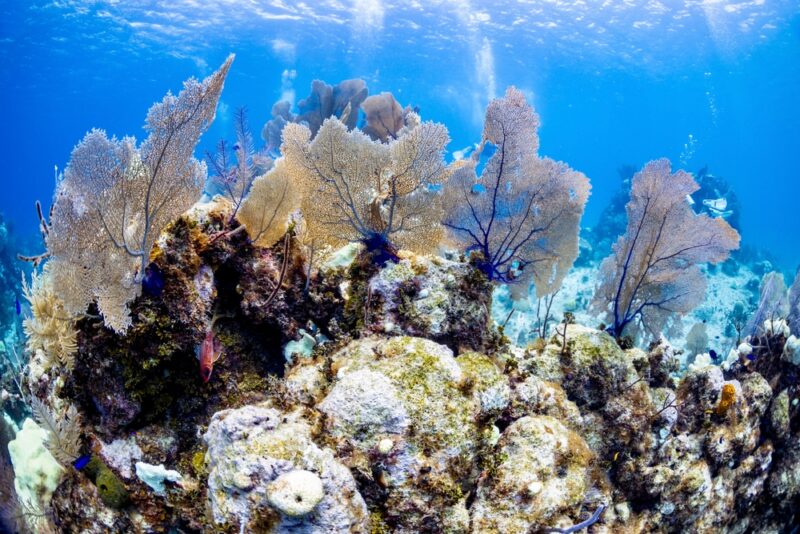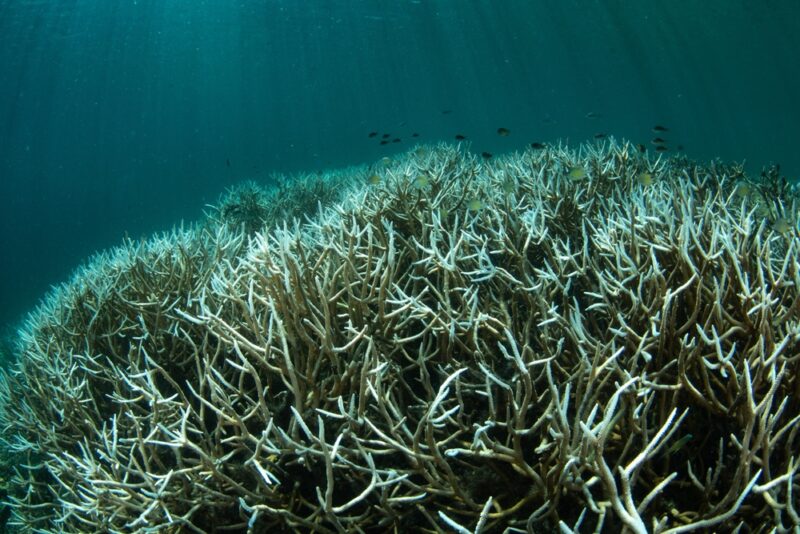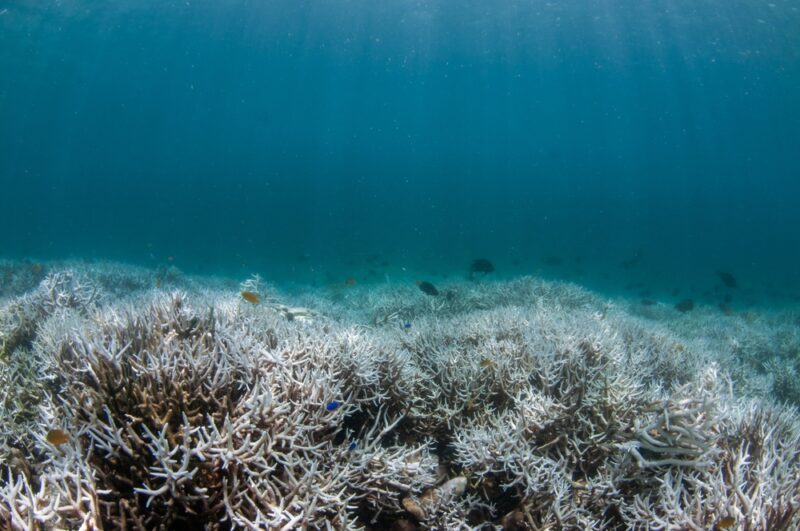More than 80 percent of the world’s coral reefs have just been hit by the most widespread and severe bleaching event in history.
According to the U.S. National Oceanic and Atmospheric Administration (NOAA), reefs in 54 countries have bleached fully or partly in the last year. Bleaching happens when corals are stressed because the water is too warm, and last year was the planet’s hottest on record. The Atlantic, Pacific, and Indian Oceans all suffered rising sea temperatures.
Researchers detected signs of serious heat stress since early 2023. By April 2024, the damage had reached catastrophic levels.
This is just the fourth global coral bleaching event on record. The scale has already eclipsed the 2014–2017 event, which was at the time the worst ever. It affected 68% of corals. The bleaching now spans over 84% of reefs globally, hitting nearly everywhere at once.
“From February 2023 to April 2024, significant coral bleaching [occurred] in both the Northern and Southern Hemispheres of each major ocean basin,” said Derek Manzello, NOAA Coral Reef Watch coordinator.

Photo: Shutterstock
When corals bleach, they expel zooxanthellae, the microscopic, single-celled algae in their tissues. Normally, as these algae photosynthesize, they produce oxygen that is crucial for the coral’s survival. Without them, corals turn ghostly white. If the stress continues, they die.
The question is how long-lasting these effects will be. Coral does not recover quickly. Even with little disturbance, reefs take a decade or longer to regrow. Warming oceans are simply pushing coral past its breaking point.
Coral reefs are considered the rainforests of the sea. They support almost a quarter of all marine species. Without them, stable ecosystems start to unravel. The UN Environment Program estimates that coral reefs “provide society with resources and services worth $375 billion per year.”

Photo: Shutterstock
In the Caribbean, Australia’s Great Barrier Reef, the Red Sea, and Florida, the reefs have suffered “near-complete” bleaching. Conservationists are trying their best, but attempts at reef restoration simply can’t overcome rising global temperatures.
“The best way to protect coral reefs is to address the root cause of climate change…fossil fuels,” Mark Eakin of the International Coral Reef Society told Euronews. “Everything else is…a Band-Aid rather than a solution.”






